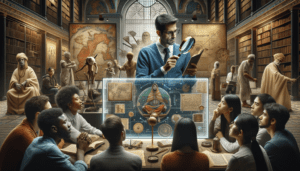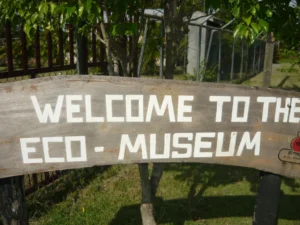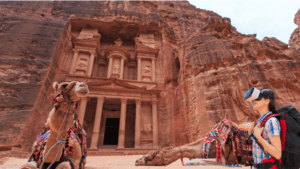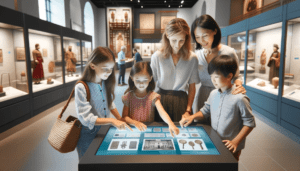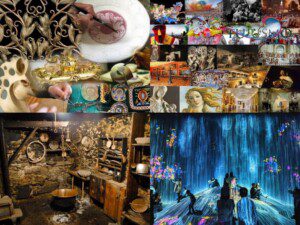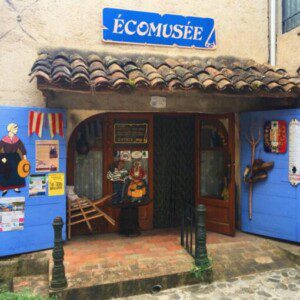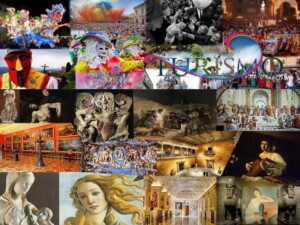BAS15: Basic Course in Ecomuseology (20 hours)
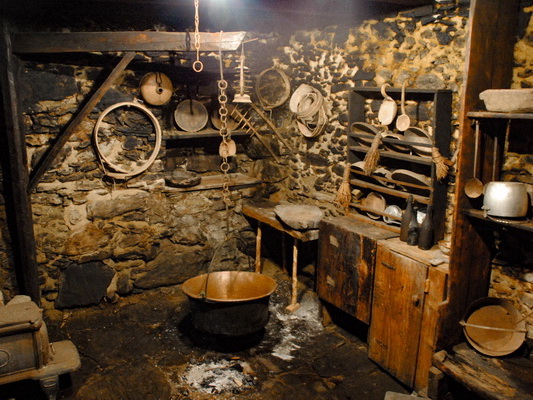
Supplying authority: Helios Study Center
Course Type: Basic course
Course delivery methods: Online
Aims
The course aims to introduce the basic concepts of Ecomuseology.
Certifications issued
At the end of the course, after passing the final test carried out online, a certificate will be issued proving the knowledge acquired. The course is also valid for listing EPTAS Directory of Tourism, Arts and Entertainment Professionals (Recognised thematic expertise: CTS51: Ecomuseology
The course is also recognized by the Italian Association of Tourism Professionals and Cultural Operators (AIPTOC) authorized by Ministry of Economic Development (MISE) to release Certificate of quality and professional qualification of the Services pursuant to Articles 4, 7 and 8 of Law 4/2013.
Educational content
- The New Museology
- From the new museology to the ecomuseum
- Origins of the term “ecomuseum”
- The different definitions of ecomuseum
- The legislation on ecomuseums
- History and evolution of ecomuseums
- Open Air Museums
- local museum
- Folk life museum
- Industrial Heritage
- Community Museum
- Integral museum
- The First Ecomuseum
- The first ecomuseum in Italy
- Uniqueness and plurality of the ecomuseum
- Typologies and prevalent themes in an ecomuseum
- Ecomuseum formulas (De Varine)
- Polynuclear Museum
- Intermunicipal Museum
- Route Museum
- Federal Museum
- Ecomuseum Animator of the Territory
- Thematic Ecomuseum
- Classification of ecomuseums based on the prevailing objectives (De Varine)
- Territory Museums
- Community Museums
- Memory Museums
- specialist museums
- Industry Museums
- Museums of Nature
- Ecomuseum typologies (Maggi)
- Microhistory Ecomuseum (Punctual Ecomuseum)
- Ecomuseum umbrella
- Village-museum
- Ecomuseum antenna
- Ecomuseums and Interpretation of Cultural Heritage
- Classification of Experiences
- Levels of Experiences
- Experiential Activities
- The Principles of the Experiential Path
- Direct and indirect interpretation
- Principles of Interpretation
- 1) Multisensory Approach
- 2) Cultural approach (Local identities)
- 3) Uniqueness
- 4) Centrality of the participants
- 5) Participation
- 6) Educational Process (Experiential Learning)
- 7) Thematic approach
- 8) Aesthetic approach
- 9) Entertainment
- 10) Immersion
- 11) Revelation (hermeneutic communication)
- 12) Provocation (communication based on provocation)
- 13) Systemic approach (holistic view)
- 14) Tailored approach
- 15) Creative approach
- 16) Interpretation based on facts
- 17) Simplicity and communicative coherence
- 18) Emotional connection (passion)
- The interpretative ecomuseum
- For a new definition of ecomuseum
- The Pillars of the Interpretive Ecomuseum
- The new ICOM definition of Museum of 2022
- Museum and Ecomuseum compared
- Heritage Interpretation Experience Centers (CEIP)
- Study cases
- The World Archive of Ecomuseums
For further information and how to purchase, please refer to the website of the Centro Studi Helios Training Body:
Featured training
Basic courses
Courses with Professionalizing Certification pursuant to Law 4/2013





